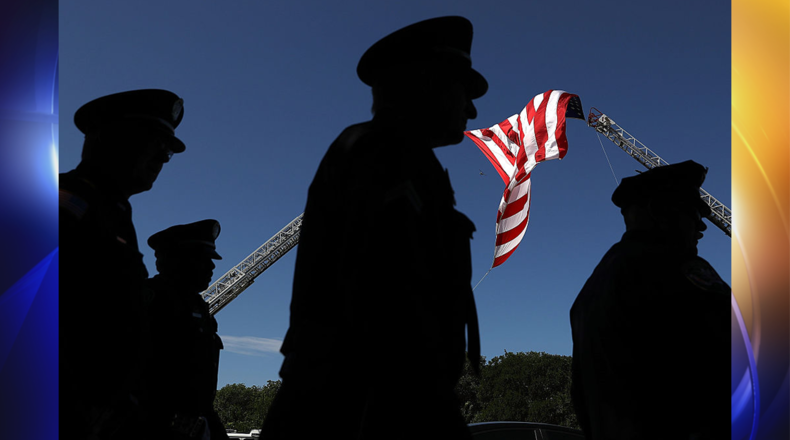The black silhouettes posted to BlueHelp.org are immediately recognizable as police officers. Nameless and faceless, each outline represents an officer who took his or her own life.
Three police suicides are listed for February 11, the day that the Kansas City Police Department announced the death of an officer who had shot himself in a church parking lot several days prior. The 10-year veteran had been put on life support until his organs could be used to aid ill people desperately awaiting a chance to extend their lives.
What a coda for police suicide. Here was an officer saving lives, even as he chose to end his own. In death, still a hero.
Choosing organ donation is a valiant act. And this officer and his loved ones deserve the shield of privacy to grieve. But it’s necessary and fair to ask, Could more could have been done to stop his suicide?
It might seem counterintuitive, but the glorification of law enforcement contributes to the problem of police suicide. Hero worship envelopes police, especially in recent years. The public’s desire to see police as invincible, able to withstand trauma and grief that would break the average citizen, is unrelenting.
“It’s exhausting being strong all of the time,” said one Kansas City officer who knew the deceased. “When are you just allowed to be human?”
BlueHelp.org believes it is the only organization tallying the steady number of police suicides. Not all are reported, especially among officers who are retired. The annual number known has held steady in recent years, about 160 deaths. At this writing, there were 31 for 2019.
The remarks of Sgt. Brad Lemon, president of the Kansas City Fraternal Order of Police Lodge 99, were brief and adamant when he addressed the board of police commissioners one day after the officer died.
For too long, the police department and the union had told officers to reach out when they need help. “We’ve got to quit waiting on people to say that they are in trouble,” he said.
Instead, Lemon had begun calling every officer who’d been involved in a shooting, just to check in.
Later in the week, he was to attend a seminar in Nashville, Tenn., for fraternal order leaders. The first session was titled Post-Traumatic Stress Disorder: To Protect and Serve Those Who Protect.
Ask a hundred different officers and you will likely hear a hundred different opinions about what can or should be done about police suicides. The view that little can be done will be included.
Much of this work needs to happen within departments, officer to officer, through the frank discussion that’s more likely among like-minded people with shared experiences. Peer-to-peer programs are increasingly used. One is being developed in Kansas City.
But there is also a role for the public.
A dangerous polarization has set in in recent years, touched off by police shootings, the emergence of the Black Lives Matter movement, and cell phone and dash-cam video that can go viral. Policing must be scrutinized, including by media or activists; that is not the problem. Law enforcement is given extraordinary authority over the general public, even the expectation that they can legally kill. They need to be held to high standards.
And yet, hyper-sensitive to any criticism of police, an equally adamant segment of the general public rushes to counter such scrutiny, too often and perhaps unwittingly placing police on an unrealistic pedestal.
They do so in a loaded language of valor. To hear some people, all officers are able to conjure extraordinary courage, almost superhuman powers.
But police are not comic book superheroes, able to withstand strains and trials unlike other people by their training alone. Police are trained to do what is necessary to save their own lives and those of others in danger. It doesn’t mean that they’re not affected by it _ or by a million other aspects of their jobs that the average person, or reporter, cannot fathom.
Science tells us that physiological reactions to stress and trauma are human. PTSD is often defined as a normal reaction to an abnormal amount of stress _ exactly the types of stress first responders deal with regularly. Therefore government authorities must be prepared to provide law enforcement with what they need to deal with PTSD: funding for programs, awareness and a shift in attitude.
The public by and large is thankful for and respectful of law enforcement. To the extent that we adulate them, it is for the risks they take with their own lives to protect ours. Please, let’s understand that there is a mental health risk they take as well, and we need to allow officers the space and the resources to reach out and receive help when they need it most.
About the Author


